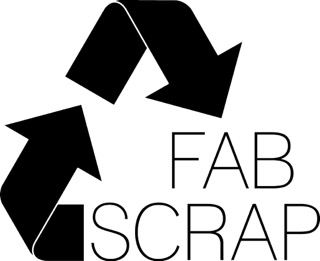Community Outreach
Creating community-wide awareness of projects is critical to encouraging the replicability of pollution prevention efforts to achieve wider impact across the state.
NYSP2I provides opportunities to educate businesses, organizations, environmental justice communities, and the public on using sustainability tools and methods to prevent waste, reuse materials, and avoid toxics. Community outreach is a critical means to achieve large-scale impacts.
We structure outreach activities to include the processing of results and lessons learned at the conclusion of every project. We share our learnings and amplify best practices and innovations through webinars, workshops, educational toolkits, events, conferences, and case studies. Throughout our work, we encourage others to replicate successful approaches.
Community Grants Program
The 2025-2026 Community Grants Program is Open
The application deadline is 5:00 p.m. EDT on April 18, 2025.
Download the 2025-2026 Request for Applications and required forms:
The application period for the 2025-2026 Community Grants Program is now closed.
Please check back in early 2026 for information on our next application period.
An annual grants award program
Each year, NYSP2I awards funding to support projects that raise awareness and understanding and lead to the implementation of pollution prevention practices and/or behaviors at the local level with the goal of improving the health, environmental quality, and economic vitality of communities in New York State.
Pollution prevention is reducing or eliminating waste at the source by modifying production processes; promoting the use of nontoxic or less-toxic substances; implementing conservation techniques; efficiently and effectively utilizing resources such as energy, water, and raw materials; and reusing materials rather than putting them into the waste stream.
What kind of projects receive funding?
We give preference to projects that:
- utilize partnerships and collaborations with other organizations.
- demonstrate a broad community impact.
- are easy to replicate and use by other organizations.
- address populations and communities affected by, experiencing, or susceptible to environmental harms and risk.
Examples of project focus areas:
- reduction of natural resource consumption
- reduction of hazardous chemical use
- food waste reduction
- pollution prevention in NY State priority areas such as greenhouse gas reductions or waste reduction through adoption of circular economy concepts
Who can apply?
NYSP2I Community Grants are a funding opportunity for community organizations and local government agencies based and operating in New York State.
Community organizations
Community organizations are defined as any nonprofit group based in New York State that conducts the majority of its work within the state. Eligible organizations may include, but are not limited to the following: lawfully incorporated/registered organizations with a focus in environmental, public health, or occupational health protection; academic institutions; neighborhood associations; environmental justice organizations; community development corporations; public benefit corporations; health centers; local unions and labor organizations; and other nonprofits. Community organizations do not need to be 501(c)(3) organizations, but they must submit a W-9 form with their application.
Local government agencies
Local government agencies are defined as offices or departments of a city, town, county, or primary and secondary schools in New York State. These may include, but are not limited to, local environmental agencies, boards of health, departments of public works, local emergency response offices, town commissions, planning and zoning boards, libraries, and schools.
Frequently Asked Questions
Responses to questions received during the open request for applications period will be posted here. Check back for periodic updates.
View Community Grants Case Studies
To view past grantee projects, including focus areas and descriptions, click herefor a pdf with past grantee projects
Contact us to learn more.
Featured Awardees
The success stories below showcase New York State organizations that received financial and technical assistance through the NYSP2I Community Grants Program.
How Shift2 is closing the Digital Divide by keeping laptops out of landfills.
A New York State nonprofit audited discarded fabric samples to divert textile waste from landfills.
Huntington Breast Cancer Action Coalition
How a Long Island nonprofit is expanding environmental health literacy by empowering youth.
How a Rochester, New York, tour boat organization is helping youth become environmental stewards of the Genesee River.












